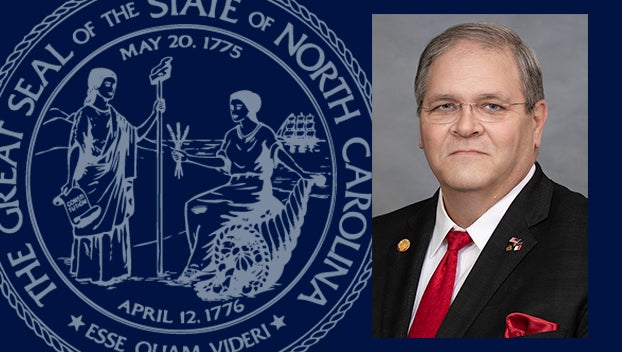Elections official: beware of advice from poll monitors
Published 2:43 am Monday, November 7, 2016

- SIGN OF THE TIMES: Voter-advocacy groups such as Democracy North Carolina offer assistance to voters, but voters with questions or voting-related problems should contact elections officials, according to Kellie Harris Hopkins, Beaufort County’s elections director.
Some polling places in North Carolina could be more crowded than usual on Election Day.
In addition to voters, poll workers and observers from the county’s political parties, observers with voter-advocacy groups as the North Carolina State Conference of the NAACP and Democracy North Carolina could send observers to county polling places. That’s unlikely to happen in Beaufort County, according to an elections official.
“We’ve not had any advocacy groups tell us they were going to have poll observers. The only ones that are allowed within the polling places are the official observers by the parties. The parties have (each) submitted, I think, three names for at-large observers. They’ll be allowed — we’ve already discussed that with our poll workers at training,” said Kellie Harris Hopkins, county elections director.
Hopkins said if vote-advocacy groups do have observers at the polls, those observers “would be no more than an electioneer who stand outside the 50-foot line and passes out stuff.”
Several media outlets report that a coalition of voter advocacy groups plan to disperse about 1,000 volunteers and about 250 legal advisers to polls throughout North Carolina on Election Day. Democracy North Carolina, which had a representative at a Beaufort County Board of Elections meeting this summer when the board set the county’s early voting schedule, plans to have paralegals and attorney standing by Election Day.
The NAACP and the Southern Coalition for Social Justice have been monitoring voter challenges in Beaufort County, with the NAACP going to court.
Anita Earls, executive director of SCSJ, attended a hearing on voter challenges in the county Oct. 29. Although the SCSJ is interested in voter challenges in Beaufort County, “We do not intend to send poll observers to Beaufort County on Election Day,” she wrote in an email.
The U.S. Justice Department plans to place observers in four counties: Cumberland, Forsyth, Robeson and Wake. “The State Board of Elections is aware that the U.S Department of Justice will be monitoring certain precincts within your county,” Kim Westbrook Strach, director of the North Carolina State Board of Elections, wrote in a memorandum Wednesday she sent to the boards of elections in those four counties. “Chief judges in the precincts must allow thse (sic) federal observers within the voting place.”
In North Carolina, each political party is allowed to have two observers at a polling place.
Poll observers (also known as poll watchers) monitor activities at polling places for political parties, which appoint them. Each party’s chairman must submit a list of that party’s observers to the local elections board at least five days before the election. The observers watch for errors or irregularities that could harm their party’s (or the public’s) interest. They are seated inside the polling place. They cannot interfere with the voting process or watch voters mark their ballots. What they observe could be relevant in a lawsuit or a complaint about voting- or election-related issues.
Each political party may place a maximum of two observers at each polling place for a minimum of four hours each. That option is known as precinct-specific poll observation. The parties have the option of using up to 10 at-large poll observers who are allowed to move from polling place to polling place, according to Hopkins.
North Carolina also allows nonpartisan poll monitors who are unpaid volunteers.
They must remain outside a polling place, but they may assist voters having problems. Political parties do not appoint them, and they do not have to be registered voters. Often, they wear a shirt or have a sign that reads “Election Protection.”
Poll monitors, according to information on Democracy North Carolina’s website, may discover problems such as election officials not providing the voter a provisional ballot or asking for an ID inappropriately; voters confused about where to vote or believing they received the wrong ballot or discriminatory treatment.
Hopkins said voters should be careful when it comes to information regarding nonpartisan poll monitors. “It sounds like, to me, these observers are there to collect data. If you’ve already voted and you come out and have a complaint about which ballot style, that’s a terrible thing to happen, talking to someone in the parking lot about it,” she said. “Once you cast your ballot, that’s it. If you’ve an issue with your ballot or jurisdiction, or if you have any questions, you talk to officials inside the polling place. Do not rely on people outside the 50-foot line to give you correct information or think they have the ability to help you after you cast your ballot.”






